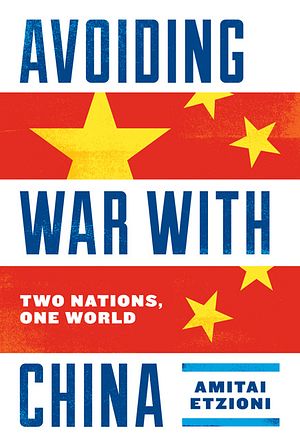The United States and China appear to be destined for war; but can it be avoided? In his forthcoming book, Amitai Etzioni tackles this very question, examining the conventional wisdom that a declining dominant power — the United States — will always struggle with its rising successor — China — and suggesting that the war could, indeed, be avoided. Etzioni spoke to The Diplomat’s Editor in Chief Shannon Tiezzi about U.S.-China relations under the new administration, whether China has been “aggressive” in the South China Sea, the question of North Korea and how to work toward avoiding a war many see as inevitable.
The first meeting between Chinese President Xi Jinping and U.S. President Donald Trump struck a positive tone. However, Trump has also been vocal about the need to take a tougher stance on a variety of issues in the relationship, from trade to North Korea. Based on what we’ve seen so far, should we expect U.S.-China relations to get better or worse under the Trump administration?
The only thing we can be sure about is that Trump is predictably unpredictable. True, he tends to be effusive about whoever is in the room but that does not provide a hint as to what is to follow — much less what his Secretary of State will pronounce or what the generals will favor.
U.S. analysts often describe Chinese actions (for example, in the South China Sea) as “aggression.” China, meanwhile, insists that aggression is not in its DNA (to paraphrase Xi). Is China “aggressive”?
In my book Avoiding War with China, I examine all the actions by China that have been characterized as aggressive. None of them meet the UN definition of what constitutes aggression. In all these acts, not one person was killed. Nevertheless, China’s assertiveness poses a challenge to the United States and there is room for rather different ways to respond to it. For more see Chapters 3 and 4 of my book.
The proposition that the U.S. and China, as a dominant and a rising power, are destined to go to war is familiar to scholars in both countries. The U.S. and Chinese governments have also spoken openly about the need to avoid that historical pattern. Has a clear awareness of the “Thucydides Trap” helped lower the risk of confrontation?
Very little it seems. Steven Bannon stated “We’re going to war in the South China Sea in five to 10 years…There’s no doubt about that.” John Mearsheimer has argued that a war between the United States and China is more likely today than a “hot” war between the United States and the USSR ever was. Above all, the military of both nations are building up their armaments and the rhetoric from both sides is not reassuring.
The title of your book makes it clear that a U.S.-China war can, in fact, be avoided. What steps would you recommend each government take, starting now, to achieve that goal?
We must first of all take the tension reduction measures that my colleagues and I worked out. These are to be reciprocal steps, followed by a series of major bargains, first of all regarding North Korea. The basis of such bargains should be relative salience, in which we make concessions to China on matters that are very important to them but not to us — and get from them concessions on matters that are very important to us but not to them.
An analysis of U.S. and Chinese core interests shows that there are rather few areas of significant difference.
What, in your opinion, is the single most pressing issue in the bilateral relationship — the one most likely to lead to conflict if not properly handled?
North Korea, first, second, and third. Fourth, surrounding China with allies whom we arm and who may start conflicts to serve their agendas — and involve the US.
There’s a growing consensus in the U.S. China analyst community that the long-held U.S. strategy of integrating China into the existing world order has failed, and that a new strategy is needed. Would you agree with that?
Yes. We need a new world order based on a confluence of interests and mutual respect, rather than on rules set up in 1945 when the U.S. was the only big power. At the same time, China must show that it is willing to limit its influence mainly to its region and observe the line between influence and domination.
Some in the militaries of both the U.S. and China are pushing for large investments in preparation for war, because they truly are concerned about the other power, thus reaffirming each other’s concerns. Some corporations push for the U.S. to spend additional scores of billions on fighter planes, nuclear submarines and destroyers — to serve their countries and make a hefty profit.
Before we go down this road — or more precisely, are carried down this path — I believe we need a public debate. Can we find ways to accommodate China or must we fight? Are there truly irreconcilable differences? What kind of world order could work for both our nations and the rest of the world? My book seeks to nurture such a debate, to provide pointers for such a give and take. If war we must, it should be only after we gave it the serious deliberation it calls for, and only after we exhausted all other means for resolving our differences.
Learn more about Amitai Etzioni’s newest book through this short video. Avoiding War With China is available from University of Virginia Press.

































